I have an issue with sealed classes. If I run my application from docker it works perfectly fine, but if I do the same in IntelliJ I run into the following exception:
java.lang.IncompatibleClassChangeError: class com.nemethlegtechnika.products.model.Attribute$HibernateProxy$D0WxdNVz cannot inherit from sealed class com.nemethlegtechnika.products.model.Attribute
If I use an abstract class instead of a sealed one, I get no errors in IntelliJ as well as in Docker. Can you guys help me find the root of the problem?
Thanks in advance and have a wonderfull day! :)
The Classes:
package com.nemethlegtechnika.products.model
import jakarta.persistence.*
import org.hibernate.annotations.DiscriminatorFormula
@Entity
@Table(name = "attribute")
@Inheritance(strategy = InheritanceType.SINGLE_TABLE)
@DiscriminatorFormula("case when stringValues is not null then 'string' else 'boolean' end")
sealed class Attribute : BaseEntity() {
@ManyToOne(fetch = FetchType.EAGER, optional = false)
@JoinColumn(name = "product_id")
val product: Product? = null
@ManyToOne(fetch = FetchType.EAGER, optional = false)
@JoinColumn(name = "group_id")
val group: Group? = null
abstract val value: Any
}
@Entity
@DiscriminatorValue("boolean")
class BooleanAttribute : Attribute() {
@Column(name = "boolean_value", nullable = true)
val booleanValue: Boolean = false
override val value: Boolean
get() = booleanValue
}
@Entity
@DiscriminatorValue("string")
class StringAttribute : Attribute() {
@Column(name = "string_value", nullable = true)
val stringValue: String = ""
override val value: String
get() = stringValue
}
The Error:
Caused by: java.lang.IncompatibleClassChangeError: class com.nemethlegtechnika.products.model.Attribute$HibernateProxy$D0WxdNVz cannot inherit from sealed class com.nemethlegtechnika.products.model.Attribute
at java.base/java.lang.ClassLoader.defineClass0(Native Method) ~[na:na]
at java.base/java.lang.System$2.defineClass(System.java:2307) ~[na:na]
at java.base/java.lang.invoke.MethodHandles$Lookup$ClassDefiner.defineClass(MethodHandles.java:2439) ~[na:na]
at java.base/java.lang.invoke.MethodHandles$Lookup$ClassDefiner.defineClass(MethodHandles.java:2416) ~[na:na]
at java.base/java.lang.invoke.MethodHandles$Lookup.defineClass(MethodHandles.java:1843) ~[na:na]
at java.base/jdk.internal.reflect.NativeMethodAccessorImpl.invoke0(Native Method) ~[na:na]
at java.base/jdk.internal.reflect.NativeMethodAccessorImpl.invoke(NativeMethodAccessorImpl.java:77) ~[na:na]
at java.base/jdk.internal.reflect.DelegatingMethodAccessorImpl.invoke(DelegatingMethodAccessorImpl.java:43) ~[na:na]
at java.base/java.lang.reflect.Method.invoke(Method.java:568) ~[na:na]
at net.bytebuddy.utility.Invoker$Dispatcher.invoke(Unknown Source) ~[na:na]
at net.bytebuddy.utility.dispatcher.JavaDispatcher$Dispatcher$ForNonStaticMethod.invoke(JavaDispatcher.java:1032) ~[byte-buddy-1.12.23.jar:na]
at net.bytebuddy.utility.dispatcher.JavaDispatcher$ProxiedInvocationHandler.invoke(JavaDispatcher.java:1162) ~[byte-buddy-1.12.23.jar:na]
at jdk.proxy2/jdk.proxy2.$Proxy118.defineClass(Unknown Source) ~[na:na]
at net.bytebuddy.dynamic.loading.ClassInjector$UsingLookup.injectRaw(ClassInjector.java:1638) ~[byte-buddy-1.12.23.jar:na]
at net.bytebuddy.dynamic.loading.ClassInjector$AbstractBase.inject(ClassInjector.java:118) ~[byte-buddy-1.12.23.jar:na]
at net.bytebuddy.dynamic.loading.ClassLoadingStrategy$UsingLookup.load(ClassLoadingStrategy.java:519) ~[byte-buddy-1.12.23.jar:na]
at net.bytebuddy.dynamic.TypeResolutionStrategy$Passive.initialize(TypeResolutionStrategy.java:101) ~[byte-buddy-1.12.23.jar:na]
at net.bytebuddy.dynamic.DynamicType$Default$Unloaded.load(DynamicType.java:6317) ~[byte-buddy-1.12.23.jar:na]
at org.hibernate.bytecode.internal.bytebuddy.ByteBuddyState$1.run(ByteBuddyState.java:203) ~[hibernate-core-6.1.7.Final.jar:6.1.7.Final]
at org.hibernate.bytecode.internal.bytebuddy.ByteBuddyState$1.run(ByteBuddyState.java:199) ~[hibernate-core-6.1.7.Final.jar:6.1.7.Final]
at org.hibernate.bytecode.internal.bytebuddy.ByteBuddyState.lambda$load$0(ByteBuddyState.java:212) ~[hibernate-core-6.1.7.Final.jar:6.1.7.Final]
at net.bytebuddy.TypeCache.findOrInsert(TypeCache.java:168) ~[byte-buddy-1.12.23.jar:na]
